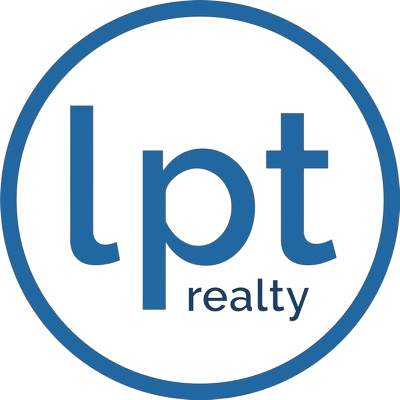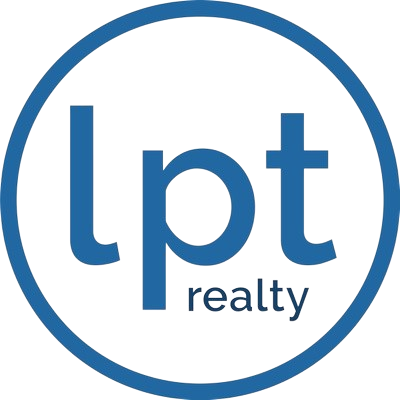Owning rental property in Charlotte can be rewarding — but it can also be exhausting. From chasing rent payments to fixing leaky sinks, landlord fatigue is real. If managing your rental feels more like a burden than a blessing, it might be time to sell.
And when it comes to selling your rental, using a professional Charlotte realtor can make all the difference in your profits, time, and peace of mind.
Deciding It’s Time to Sell
The Reality of Landlord Fatigue
Landlord burnout usually creeps up slowly — after years of dealing with maintenance issues, late-night tenant calls, property taxes, and rising insurance costs. What once felt like a great investment now feels like a second job.
If your rental income isn’t worth the time, effort, and stress it takes to maintain the property, that’s a clear signal to sell.
Market Signals in Charlotte
Charlotte’s real estate market remains strong. Population growth, job creation, and demand for housing have made it a hot spot for sellers. According to local data, home prices have continued to appreciate steadily, even as the market normalizes.
For landlords, that means high property values and a great opportunity to cash out before the market cools or expenses rise further.
Why You Should Use a Realtor to Sell Your Rental
1. Accurate Pricing and Market Insight
Pricing is everything. Set it too high, and your property will sit unsold; too low, and you’ll leave money on the table. Realtors know how to use local comps and data to set a competitive price.
They also understand the unique dynamics of each Charlotte neighborhood — from South End to NoDa — ensuring you attract the right buyers and sell faster.
2. Smooth Tenant Handling
If your property still has tenants, selling gets tricky. You’ll need to navigate notice periods, showings, and possible tenant resistance.
A realtor will manage this process professionally, ensuring compliance with North Carolina landlord-tenant laws and minimizing disruption for both you and your tenants.
3. Professional Marketing and Buyer Targeting
Realtors know how to market to the right audience — whether that’s investors looking for turnkey rentals or homebuyers seeking a move-in-ready house.
Expect professional photos, virtual tours, and wide exposure across MLS, Zillow, Realtor.com, and investor networks.
4. Negotiation Expertise
Buyers today are savvy. They’ll negotiate repairs, credits, and closing costs aggressively.
An experienced realtor will handle these negotiations for you — defending your profit margin while keeping the deal moving smoothly.
5. Legal and Tax Compliance
Selling a rental isn’t the same as selling your primary home. You may face capital gains taxes or depreciation recapture. A realtor familiar with investment sales can connect you with the right professionals to minimize your tax burden and avoid costly mistakes.
6. Less Stress and More Time
You’re already tired of managing tenants. Why add the stress of selling to your plate?
Your realtor handles everything — marketing, offers, showings, and paperwork — while you focus on your next move.
How to Choose the Right Realtor
Look for Investment Experience
Not every agent understands the nuances of selling a rental. Choose one with investment property experience — someone who knows lease agreements, tenant rights, and cap rates.
Local Expertise Matters
Charlotte is diverse — SouthPark, Plaza Midwood, and University City all attract different buyers. A local realtor will know what each area’s market values and buyer expectations are.
Strong Marketing and Communication Skills
Ask your potential realtor how they plan to market your property. They should offer a clear strategy, regular updates, and transparent communication about every step.
Steps to Selling Your Rental Property
Step 1: Evaluate and Plan
Meet with a realtor to assess your property’s market value. Review your lease terms, outstanding repairs, and financial goals for the sale.
Step 2: Prepare the Property
Even minor improvements — fresh paint, landscaping, or upgraded lighting — can boost your home’s appeal. If your tenants are still there, schedule showings strategically and consider offering incentives for cooperation.
Step 3: List and Market
Your realtor will list the property across multiple platforms and highlight its strengths — location, rental income, and recent updates.
If the home is tenant-occupied, they’ll work around the lease while ensuring compliance with North Carolina’s showing laws.
Step 4: Negotiate Offers
You may receive offers from both investors and homebuyers. Your realtor will evaluate each one based on net proceeds, contingencies, and closing timeline — not just price.
Step 5: Close and Transition
Once under contract, your realtor will coordinate inspections, appraisals, and closing details. They’ll also help handle tenant transitions and security deposit transfers to ensure a smooth finish.
Charlotte-Specific Tips for Landlords
Timing the Market
Charlotte’s housing demand remains strong, but experts predict a more balanced market in the next 12–18 months. Selling now allows you to capitalize on current prices before interest rate shifts or new regulations affect values.
Occupied vs. Vacant Properties
Occupied rentals are attractive to investors but can limit buyer options.
Vacant homes appeal to owner-occupants and often sell faster.
Your realtor can advise whether it’s better to wait for your tenant’s lease to end or list now with a renter in place.
Knowing Your Buyer
A Charlotte realtor familiar with investor clients can connect you directly to those seeking turnkey properties with strong rent rolls — helping you sell faster and for more.
FAQs
Can I sell my rental property myself?
You can — but selling “For Sale by Owner” often leads to pricing mistakes, limited visibility, and potential legal issues. A realtor maximizes exposure and ensures a smooth process.
How much does a realtor charge in Charlotte?
Realtor commissions typically range between 5–6% of the sale price, split between listing and buyer’s agents. Most sellers find the added value easily covers the fee.
What if my tenant refuses to leave?
A realtor can help you legally manage tenant issues — from notice to vacate to incentive-based move-outs (“cash for keys”). North Carolina law requires proper notice and documentation.
Are there tax consequences when selling a rental?
Yes. You’ll owe taxes on any capital gains and recaptured depreciation. Your realtor can recommend a local CPA who specializes in real estate to help minimize your liability.
Should I sell now or wait?
If you’re feeling burned out and property values are high, it’s often better to sell sooner. Holding longer may mean more wear-and-tear and potentially lower prices as markets cool.
Final Thoughts
Being a landlord in Charlotte can be profitable, but it’s not always easy. When the headaches outweigh the benefits, selling is often the smartest move — especially with a knowledgeable realtor by your side.
A skilled agent will handle pricing, marketing, legalities, and negotiation, letting you exit gracefully with maximum profit and minimal stress.
So, if you’re a tired Charlotte landlord ready to turn the page, reach out to a local real estate professional today — and start your next chapter with confidence.
📞 Let's Talk Strategy
If you want to make the most of this momentum — whether you're buying, selling, or building — let’s talk. I’ll show you how to navigate this market with confidence and come out ahead.
📞 Call Bill Burns: 919-725-2837
📧 Email: billburnsrealty@gmail.com
🌐 Visit: www.carolinaforsale.com
Let’s make your next move the smartest one yet.











![Your Home Buyer Wants To Extend The Closing Date—What Now? [PART 2]](https://images.squarespace-cdn.com/content/v1/5d9f80165029a26e696f43ef/1764096421649-C1U1RI1J7ZPFS3IEBVDZ/banner.jpg?format=200w)

